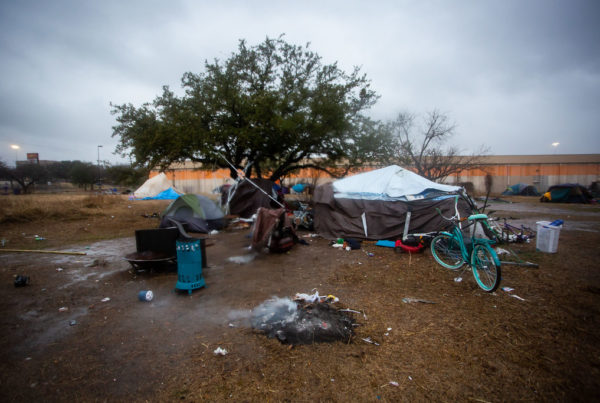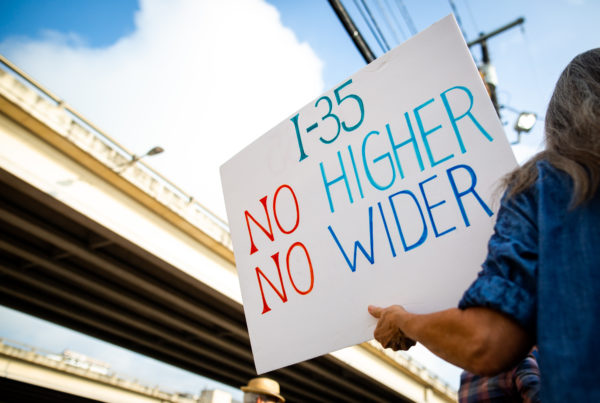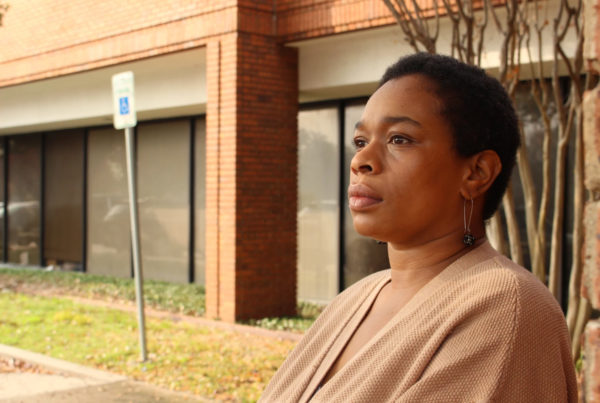Caregivers who help support disabled Texans are leaving their jobs in droves, according to an investigation by the Austin American-Statesman.
The Texas waiver system, a set of six Medicaid-funded programs created in the 1980s as a safer alternative to institutional care, is jeopardizing the safety of thousands of vulnerable clients and their caregivers, the Statesman reporting shows.
Caroline Ghisolfi, the Statesman’s data reporter, said the waiver system is collapsing from decades of underfunding and lax oversight. Ghisolfi spent months collecting data from federal, state and local agencies to try and get a better picture of the situation.
“We found a cascade of problems. They begin with the severe underfunding of these services: The number of people receiving services has doubled since 2010, but the funding has only grown by about 17%,” she said. “Worker pay is also incredibly low, below the Texas poverty line. The base pay for caregivers is just $8.11. In the past decade, about 1,000 workers were paid below the base wage or never received pay for overtime, which in this profession can mean working multiple days in a row with very short breaks.”
All these factors have led to high turnover and worker shortages. Combined with lax government oversight and gaps in regulation, Ghisolfi said, the result is underpaid, overworked caregivers who are often not supervised and not trained to deal with clients who require constant care.
Ghisolfi highlighted the plight of Tre’Asia Anderson, who used to work a regular eight-hour day until her coworkers started leaving.
“We asked her employer, a company called Caregiver Inc, to send us Tre’Asia’s timecards from last spring, and it shows that in early April she routinely worked shifts of 20 hours or more,” Ghisolfi said. “One shift spanned 70 hours. That’s three consecutive days with no sleep and just two very short breaks. And she is paid just $9 an hour, which by our analysis, wouldn’t even cover most Texans’ basic rent and grocery expenses.”
The lack of training and oversight also leads to caregiver injuries, and lawsuits are very common in the industry, Ghisolfi said. The Statesman team spent months looking at legal actions in Texas and found suits about workers not being paid overtime and workers being severely injured on the job.
“In our article, we tell the story of one caregiver, her name is Gloria Franco, she was kicked and punched to the floor, suffered a concussion and a brain bleed. She’s 75 and she still deals with severe symptoms a year later,” Ghisolfi said. “Others were physically, sexually assaulted and remain traumatized. The stories are truly horrific.”
Ghisolfi said advocacy groups, workers and government officials all seem to agree that the system needs better funding and higher pay for workers.
“Advocates’ main focus right now is raising the base wage to $15 an hour. They believe that’s going to help address understaffing and hopefully reduce injuries and deaths in the system,” she said. “Several senators that we talked to want to address safety and staffing issues directly with the legislation that essentially increases regulation. But to date, no one has really committed to a concrete plan of action.”














